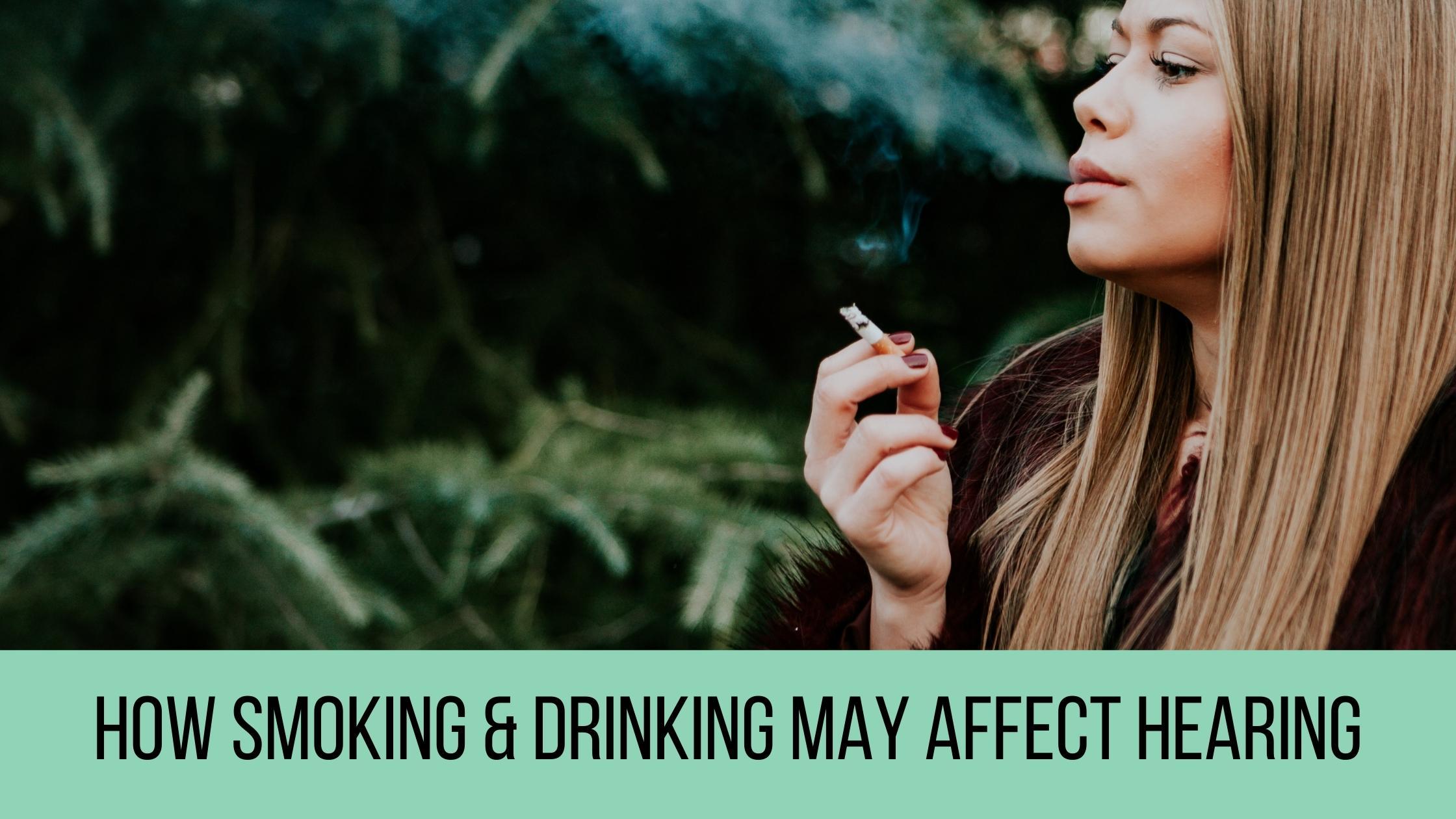
- Understanding the Different Types of Assistive Listening Technology - April 15, 2025
- Emergencies That Can Occur With Hearing Aids - April 5, 2025
- When to Consider a Second Opinion for Hearing Health - March 25, 2025
Hearing loss is an often under-recognized complication of smoking and drinking. Research shows that smoking and drinking can take a toll on hearing health by increasing the risk of developing hearing loss. Hearing loss is one of the most common chronic medical conditions that people experience today. Impacting nearly 48 million people, hearing loss has multifaceted effects on health and daily life. Identifying and modifying risk factors for hearing loss is an important way to prevent its development. Studies suggest that changing patterns related to smoking and drinking can help protect hearing health.
Research Linking Smoking, Drinking, & Hearing Loss
Numerous studies investigate the relationship between smoking, drinking, and hearing loss. Research shows that these behaviors can be hazardous for hearing health. This includes the following findings:
- 2019 study published in the Nicotine & Tobacco Research Journal: to examine the link between smoking and hearing loss, researchers evaluated smoking behavior and hearing health over 8 years. This study included nearly 50,000 people who were 20-64 years old. Researchers found that compared to nonsmokers, smokers were:
- 60% more likely to develop high-frequency hearing loss
- 20% more likely to develop low-frequency hearing loss
Additionally, researchers found that the more one smoked, the higher the risk of
developing hearing loss was.
- 2019 study published in the Journal of Audiology & Otology: researchers in South Korea analyzed data provided from a national health survey. This information included data from hearing tests and a questionnaire that assessed drinking patterns for 3,860 people who were 20 years old and above. Researchers found that:
- participants who reported their drinking as hazardous were 2.5 times more likely to experience hearing loss compared to those who identified their drinking as appropriate.
These recent studies are among existing research showing that smoking and drinking can permanently affect hearing health.
Impact of Smoking & Drinking on Hearing Health
It is commonly known that smoking and drinking can impact health in a variety of ways but how exactly can it contribute to hearing loss? Experts suggest that smoking and drinking affect oxygen flow. Nicotine and alcohol can constrict blood vessels by lowering blood oxygen levels which slows circulation throughout the body including in the ears. This can affect the auditory system in a few ways including preventing cells in the ears from getting enough oxygen to function effectively.
There are thousands of hair cells in the inner ears and they play a key role in how sound is processed. These sensory cells convert incoming soundwaves into electrical signals which then get sent to the brain. The brain then assigns meaning to these signals which are how we understand what we hear. When oxygen is depleted, these cells can begin to deteriorate. And because hair cells in the inner ear (unlike other types of cells we have) do not regenerate, this damage is permanent, resulting in hearing loss.
Reducing Your Risk of Hearing Loss
Fortunately, there are ways to reduce your risk of developing hearing loss. By integrating a few tips, you can protect your hearing health. This includes:
- Reduce or eliminate intake: research findings on smoking and drinking show that the more you consume, the risk of developing hearing loss increases. So this means that reducing consumption can decrease this risk.
- Check hearing regularly: having your hearing assessed regularly is another great way to monitor your hearing health. Experts recommend taking a hearing test every year which assesses your hearing capacity in both ears. This identifies any impairment and allows you to track any changes to your hearing health.
- Avoid additional hearing hazards: in addition to reducing or eliminating smoking and drinking, avoiding other common ways hearing loss develops is a useful safety measure. Loud noise is a major cause of hearing loss so reducing your exposure is another helpful way to protect hearing. You can do this by wearing hearing protection like headphones, lowering volume settings on electronic devices, and avoiding noisy environments.
Implementing these safety measures can help mitigate the potential harm on hearing that these hazards have.
Prioritize Your Hearing Health
Call us today to schedule an appointment for a hearing test. This is an important step towards protecting your hearing health and wellness.
